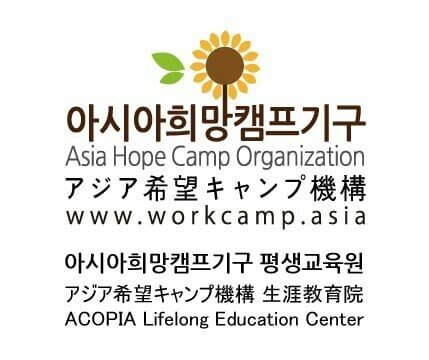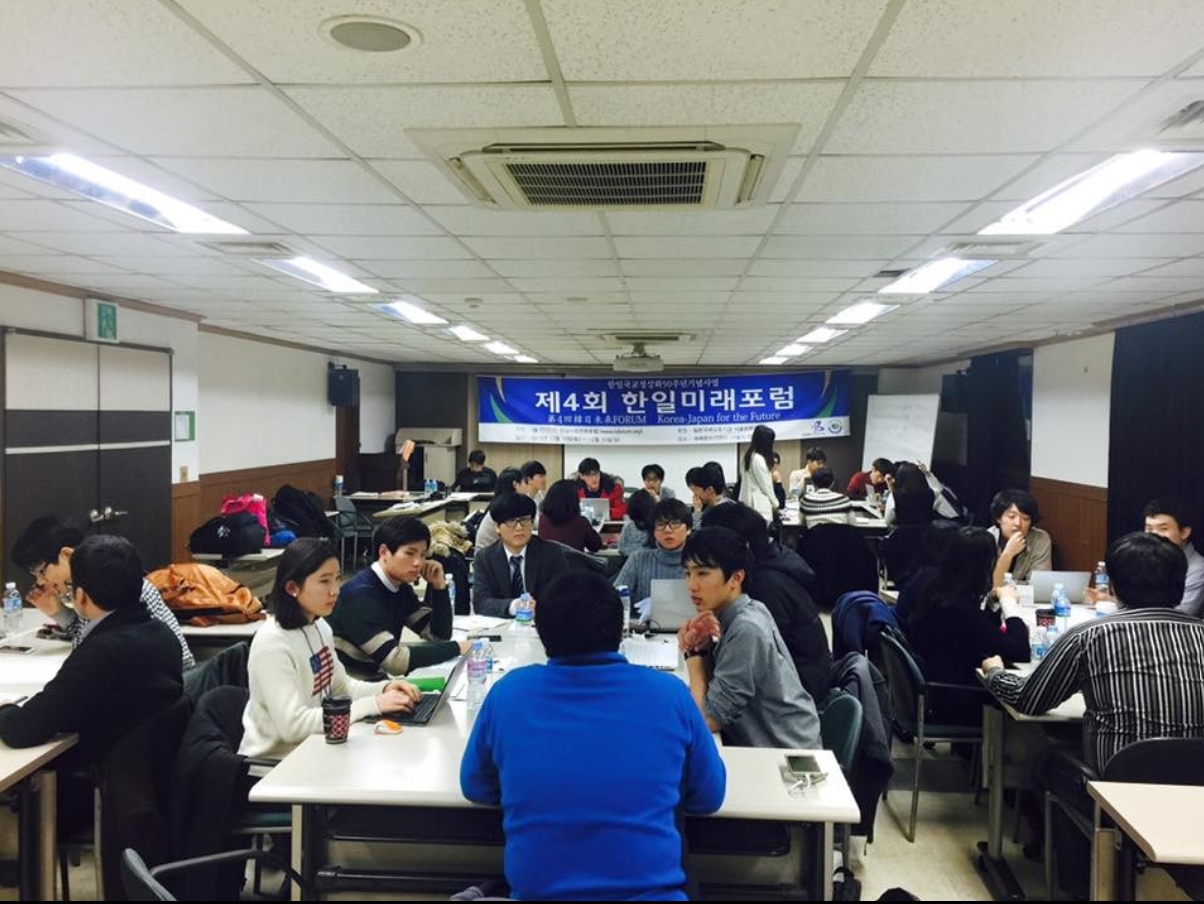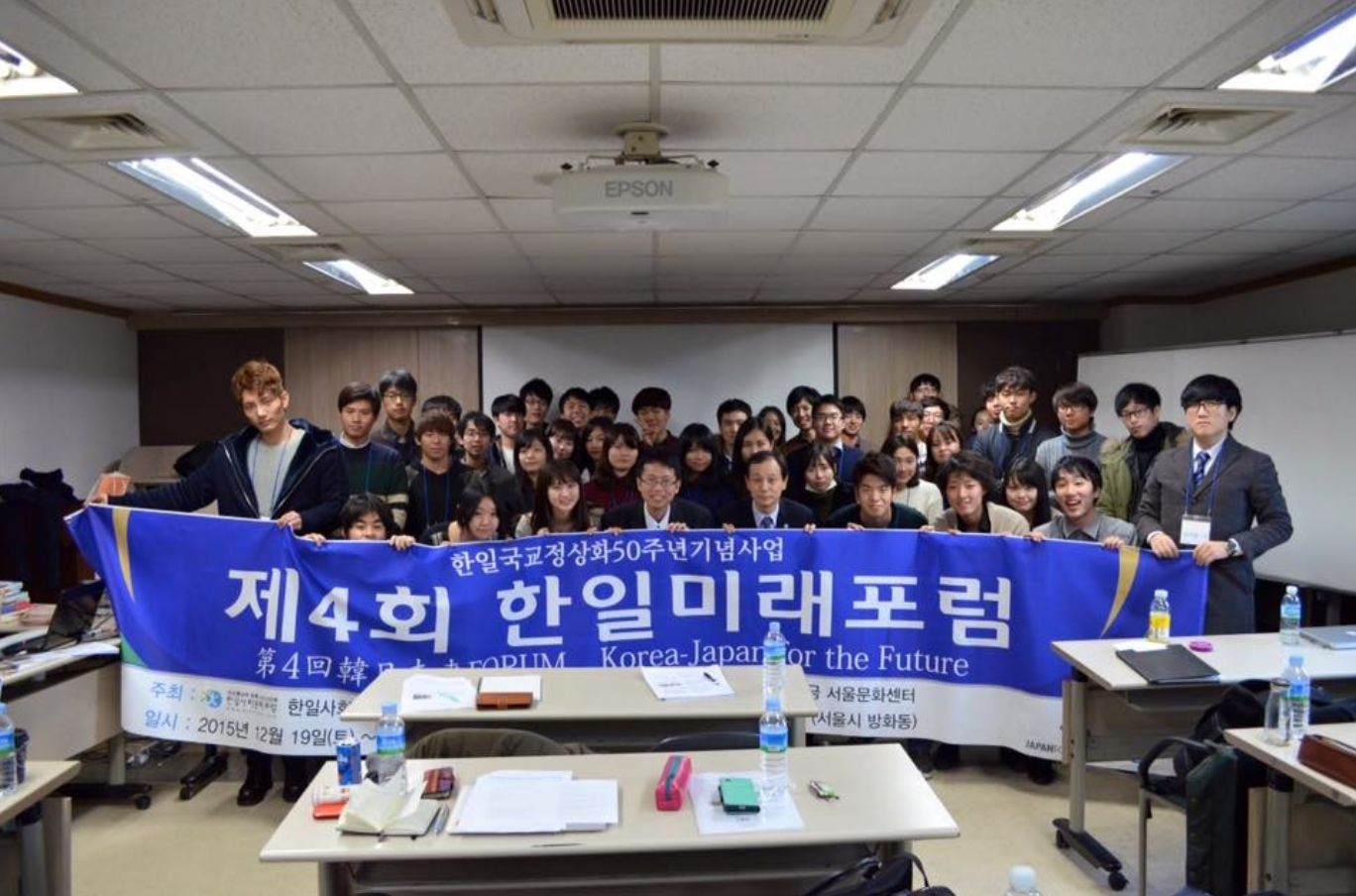MULTICULTURAL SOCIETY FORUM
LET’S CREATE TOGETHER A WORLD WITHOUT MISUNDERSTANDING AND HATRED !
It has now been more than half a century and the Japan–South Korea tensions are at their worst since the two countries normalized their relations in 1965. Due to Japan’s colonization of the Korean peninsula (1910–1945) and the territorial dispute over Dokdo/Takeshima, these tensions have reached into trade relations, security cooperation, and even the young generation of both countries.
ACOPIA, since its creation, has worked on the promotion of dialogue and deeper understanding through work camps, sharing cultural experiences and K-POP. Working first for the Korea-Japan relationship, ACOPIA is aiming to grow its vision to Asia and the world.
The Korea-Japan Society and Culture Forum (hereinafter referred to as “the KJ Forum”) is a non-profit organization registered in the Ministry of Foreign Affairs of Korea.
The KJ Forum was founded in 1999 to promote cross-cultural and intellectual exchange between Korea and Japan. To actively build Korea-Japan relations, KJ Forum regularly cooperates with local Japanese authorities and organizations.
In October 1998 of the previous year, the inflow of Japanese popular culture that was forbidden by law for 38 years had been lifted. Information about Japan that came from the Internet, satellite broadcasting, and low-cost airline tickets had been exposed to all citizens. Before that, Japanese information was only limited to some people.
Since it was released to every Korean citizen, it greatly affected Korean people’s values and view toward Japan. Therefore, the KJ Forum was established in order to release accurate information about the issues between Japan and South Korea and to have a meeting structure where people can exchange diverse opinions freely. After the establishment of the KJ Forum, the Japan-Korea Journalists Forum, the Japan-Korea Assembly Forum, the Japan-Korea Municipal Forum and the Japan-Korea Youth Forum, policy officers, intellectuals, journalists and citizens of both countries gathered together to freely discuss about the pending issues between Japan and South Korea. Although because of the unfortunate history between Japan and South Korea, the discussion on the climate between Japan-Korea issues has never been truly diplomatic. However, based on the belief that realistic countermeasures can be drawn out only by establishing a place for academia and a constructive debate on the site, we have worked hard on setting up a forum to discuss explicitly about the issue between Japan and South Korea.
Since KJ Forum is a non-profit government organization, the HIROBA Company was created to manage the financial and taxation affairs of KJ Forum. In October 2013 HIROBA was registered with the Office of National Tax Administration. The role of HIROBA is to support KJ Forum’s operation as an independent NGO and to sponsor the income or profit-making programs that will allow KJ Forum to meet their financial budget and comply with taxation regulation.
Hosted and Supervised by KJ Forum
Internships at Japanese Public Organization
Furusato Program
Korea-Japan Exchange and Japanese Communication (KJEJ)
Korea-Japan Youth Forum
Korea-Japan of the Future
Hosted by KJ Forum & Supervised by HIROBA
Learning Korean (Volunteer)
Working Holiday in Japan
Homestay in Korea
Airport Pick-up
Asia Hope Work Camp
Korean Culture Experience (Tour)
Normalized by the Korea-Japan Treaty of 1965, the relationship between Korea and Japan has developed bilateral relations with common values and interests for 50 years. Cultural exchange between the two countries, which had little interchange even after the normalization of diplomatic relations, developed in 1998 with the opening of Japanese popular culture in the Kim Dae-jung regime.
Nowadays, Korean streets are crowded with Japanese tourists who shop in downtown areas such as Myeongdong or Dongdaemun, and Japanese dramas and animations are broadcast on Korean television. Walking along the street, there are many Japanese restaurants and it's common to see signs written in Japanese (a rare sight 20 years ago).
At present, the existence of "Japan" in Korean society is not something special but is deeply rooted in Korean society, and it is accepted by people as an intimate neighboring culture. The Korean Cultural Wave, which is also represented in Japan as "Winter Sonata", landed in Japan in the early 2000’s, and became a prominent figure in Korean popular culture and appealing to "Korea." The neighbor's appearance through CRT was different from the conventional Korean image that the Japanese had for a long time. Korean culture, represented by K-POP or Korean food, has also deeply penetrated into Japan, and many Japanese people are living in a close relationship with Korea.
The cultural relationship that our two countries have built up is no longer broken, and will continue to develop. However, while building friendly cultural relations, the issue of historical perception of the two governments from the unfortunate history of the past casts a dark shadow on the current bilateral relations. Conflicts arising from the perceptions of the two governments are communicated to Korean-Japanese citizens through media reports, and Korean-Japanese sentiment is deteriorating. As a result, discussions between the two governments and the intellectuals of Korea and Japan have not been solved.
Thus, the Korea-Japan Social Culture Forum, which has been serving as a bridge between Korea and Japan since its establishment in 1999, is concerned about the deterioration of the current relationship between Korea and Japan. In order to make it half a century, we decided to hold the "Korea-Japan Future Forum" in search of a new way of promoting mutual understanding by the younger generation of Korea and Japan who will bear the future of both countries.
Improving the Korea-Japan relations is expected to be a repression on North Korea's nuclear weapons problem, which is opposite South Korea with the 38th parallel on the Korean Peninsula. After considering these factors, the younger generation, will consider the future of Korea and Japan, discuss the improvement of relations, the improvement of Korea-Japan sentiment, and seek new ways of cooperation. It is also hoped that the fact that such a meaningful forum was held by the hands of the younger generation of Korea and Japan, in the hope of peace between Korea and Japan, will give a kind of "hope" to those who have aggravated feelings towards Japan.








